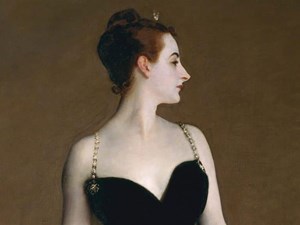Guest Blog: Girl - Who Gets to Tell Trans Stories?
Lukas Dhont’s 2018 feature debut, Girl, presents audiences with an intimate portrait of a fifteen-year-old transgender girl’s day-to-day life as an aspiring professional ballet dancer. The film has provoked controversy for, amongst other issues, its decision to cast a cisgender male actor in the lead role. At the Showroom we think it's important to open up a space for debate about the films that we show, so we asked guest writer Yasmin to share their thoughts on the film, and to engage with the debates currently surrounding it.
*Contains Spoilers*
Loosely based on Nora Monsecour’s own experiences with being a transgender dancer; fifteen-year-old trans girl, Lara (Victor Polster), moves to Belgium with her supportive father and younger brother to attend a prestigious dance academy and start her medical transition. She begins hormone replacement therapy fairly soon after her arrival before being given the A-Okay for her eagerly anticipated vaginoplasty surgery, and simultaneously begins her transition from a male-trained to female-trained ballet dancer. Pushing her body to the limits in pointe training intersects with Lara’s desperation to gain the female body she has always desired, creating a truly unique backdrop for a trans narrative.
Although we see her encountering hardships, such as gender dysphoria and transphobic remarks from her teacher at school, at first it appears that Lara’s tale may be a considerably more positive one in contrast to films which demonise and abuse their trans characters. Famously, The Crying Game sees its transfeminine character hit and treated with disgust by her romantic pursuer upon his discovery that she is trans in a perverse ‘gotcha’ moment; and furthermore, whilst not explicitly about trans women, horror films such as Psycho, Silence of the Lambs and Sleepaway Camp all depict their villains as murderous cross-dressers who take on feminine alter-egos, creating an air of paranoia and fear surrounding the notion of transfemininity.
But despite seeming more progressive in regards to documenting the issues transgender women face, going on to receive critical acclaim in the film industry and winning an array of awards including Cannes Film Festival’s Queer Palm in 2018; Girl has been condemned by a number of trans and queer writers who argue that Dhont is yet another cisgender filmmaker to reduce the complex transfeminine experience to a two-dimensional obsession with the body.
Shots of Lara in a state of undress aren’t uncommon throughout Girl , as multiple times the audience bears witness to her removing tape from her tucked penis, changing amongst her cis counterparts at the dance academy and looking at her body in the mirror at home; and whilst some viewers may feel that both Lara and the camera’s fixation on her body expresses the trials against dysphoria, others critique Dhont for taking on a voyeuristic gaze and fetishizing Lara’s pain. Girl raises important questions such as: Does the cisgender lens always fail in humanising its trans subjects? And when does an attempt to educate cisgender audiences on trans issues become a gratuitous depiction of trauma?
Whilst Dhont’s choice to cast a cisgender boy in the lead role as a transgender girl leaves a lot to be desired for a number of critics, his decision to include a scene of self-mutilation as a key driver of the narrative has proven even more divisive. The final scenes of the film carry a positive tone and could suggest to some that this dangerous act of self-harm was key in Lara’s journey to obtain happiness - one can’t help but be concerned for trans youth after watching these scenes unfold. Already, the media is filled with upsetting news articles and images debating the rights and futures of trans and queer people around the world, so now, more than ever, we collectively need to promote a message of hope and solidarity to trans people whilst giving them their own platform to speak on. Time after time, cisgender filmmakers and actors find themselves telling trans stories and time after time, the media is overrun with pleas from the queer community, asking them to stop misrepresenting their transgender siblings and themselves.
Girl successfully puts to screen an honest representation of Monsecour’s personal experiences and provides its audience with an intimate and moving drama, but I think it’s important to continue asking ourselves who should be telling and enacting these real and important stories?


